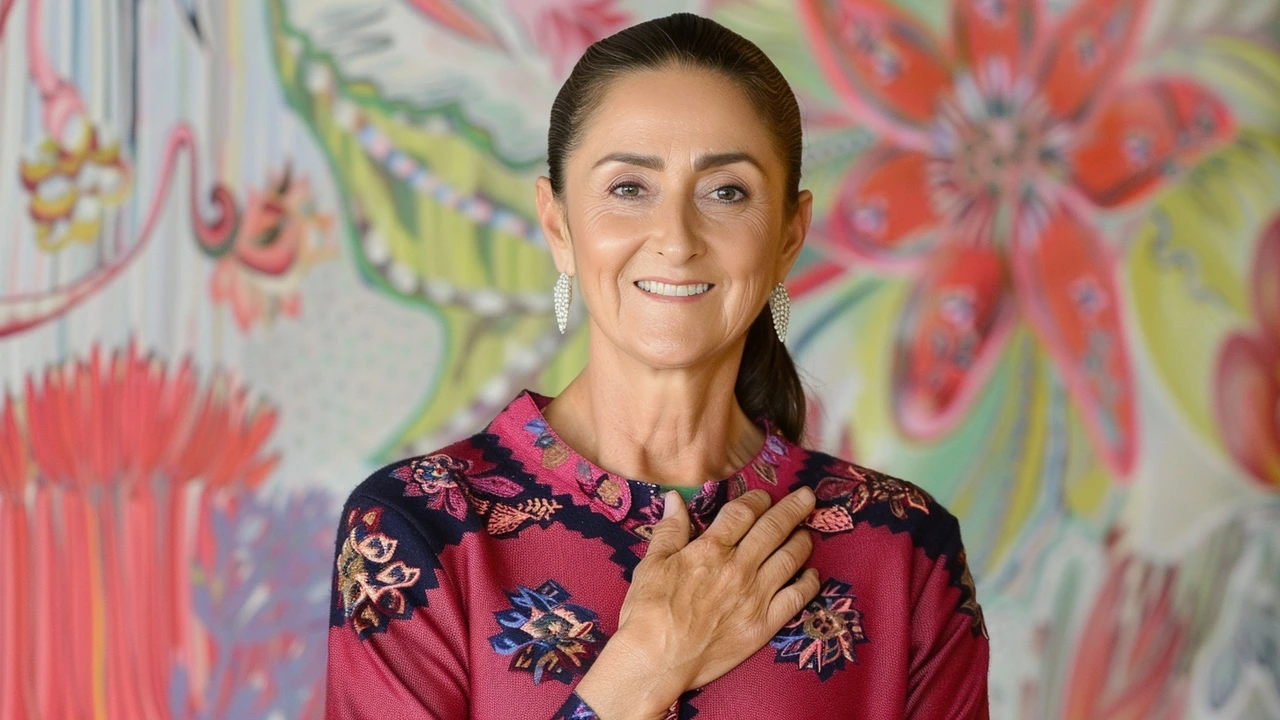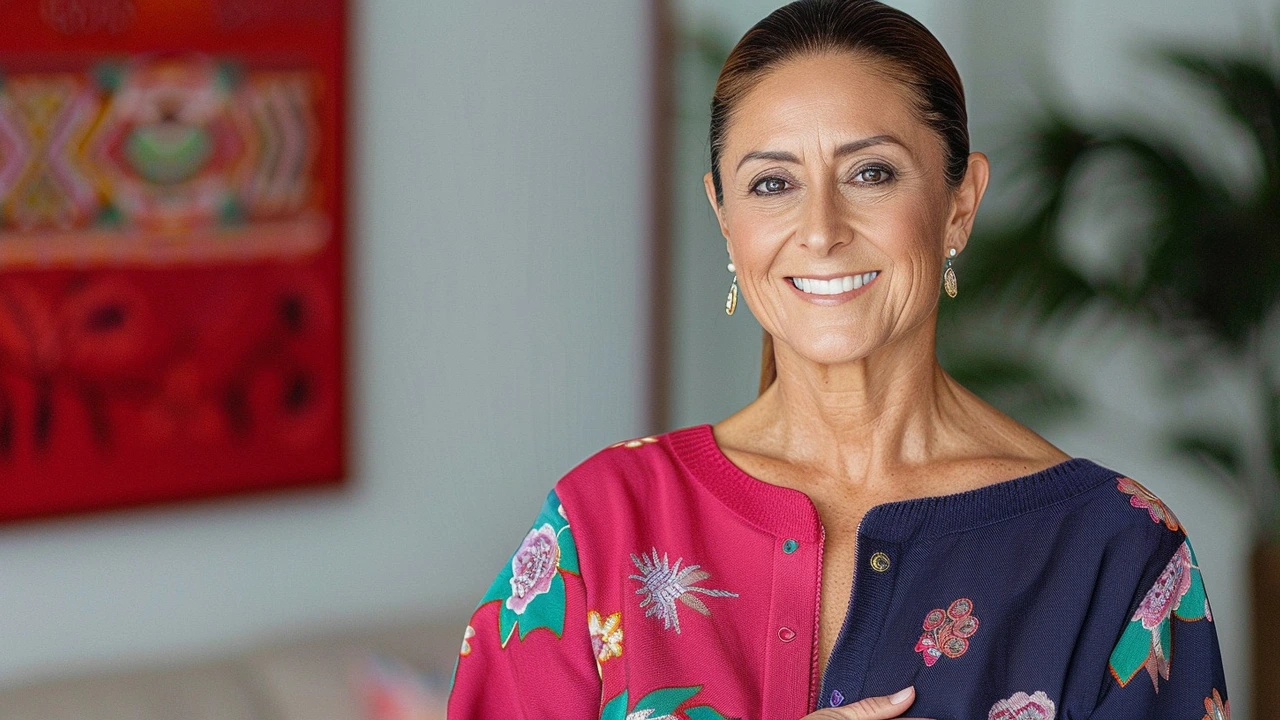
In a landmark election, Claudia Sheinbaum has been elected as the first female president of Mexico. This historic event not only highlights the growing political influence of women in Latin America but also sets a significant precedent for diversity in leadership roles within the region. Sheinbaum, a 61-year-old climate scientist and the former mayor of Mexico City, has long been a prominent figure in Mexican politics. Her ascent to the presidency is being celebrated widely as a monumental step towards gender equality and greater inclusivity within the nation.
The now-president won the election in a commanding landslide, securing nearly 58 percent of the vote, according to preliminary results from the Mexican electoral office. This decisive victory underscores a strong public endorsement of her policies and vision for the future of Mexico. It's a remarkable achievement, particularly in a country where political leadership has historically been dominated by men.
Sheinbaum’s election also marks another historic first: she is the first Jewish person to ever be elected to lead Mexico, a country where Catholicism has deep roots and remains the predominant religion. This aspect of her victory shines a light on the slowly but steadily shifting attitudes towards religious and cultural diversity in the nation. Many see Sheinbaum’s triumph as a hopeful indicator of a more inclusive and progressive Mexico, one that embraces leaders from various backgrounds and beliefs.
Her political journey has been marked by a focus on progressive policies, particularly around climate change and urban development. Before taking on the role of president, Sheinbaum served as the mayor of Mexico City from 2018 to 2024, where she implemented various environmentally forward policies that earned her both praise and scrutiny. Her tenure as mayor provides a glimpse into what Mexicans can expect from her presidency: a focus on sustainability, social equality, and technological innovation.
Sheinbaum’s academic background as a climate scientist has certainly informed her policy positions. During her time as mayor, she championed initiatives designed to reduce Mexico City’s carbon footprint and tackle the pervasive issue of air pollution. Sheinbaum advocated for the expansion of public transportation, the creation of more green spaces, and the adoption of renewable energy sources. Her science-driven approach won her many supporters who were tired of seeing environmental issues take a backseat in the political arena.
Breaking Through Barriers
Sheinbaum’s rise to the presidency did not come without its challenges. Throughout her career, she faced significant opposition, not only from political adversaries but also from those resistant to the idea of a woman, and particularly a Jewish woman, in such a high-ranking position. Despite these hurdles, Sheinbaum’s resilience and determination have been instrumental in her successful political trajectory. Her victory is being lauded as a watershed moment for gender and religious equality in Mexican politics.
The feedback from the international community has been largely positive, with many global leaders congratulating Sheinbaum on her groundbreaking win. Commentators and political analysts have noted that her election could inspire more women and minorities worldwide to pursue leadership roles. It’s a sentiment echoed by numerous women’s rights organizations and advocacy groups that have hailed her victory as a beacon of progress.
Nevertheless, the road ahead for Sheinbaum is fraught with challenges. Mexico faces a myriad of issues including economic instability, rampant corruption, drug-related violence, and a struggling healthcare system. Expectations are high, and the new president will need to navigate these complexities with both dexterity and compassion. It's a daunting task, but Sheinbaum’s supporters are optimistic that her unique background and experiences will equip her with the tools needed to drive meaningful change.
Immediate Priorities
Upon assuming office, Sheinbaum has outlined several key priorities that her administration will tackle in the coming months. First and foremost is the issue of public safety. Mexico has long struggled with violence and crime, much of it linked to drug cartels. Sheinbaum has pledged to implement comprehensive reforms aimed at improving law enforcement capabilities, enhancing judicial processes, and addressing the root causes of crime through social programs and economic opportunities.
Economic reform is another major focus. The Mexican economy has been hit hard in recent years, exacerbated by the global COVID-19 pandemic. Sheinbaum’s economic strategy involves stimulating job creation, supporting small and medium-sized enterprises, and investing in infrastructure projects that can drive long-term economic growth. Her administration also plans to address income inequality and ensure that economic benefits are more evenly distributed across the population.
Healthcare and education are also top on the list. The recent pandemic exposed significant weaknesses in Mexico’s healthcare system, and there is a pressing need for reform and investment in this sector. Similarly, improving the quality and accessibility of education is essential for Mexico’s long-term prosperity. Sheinbaum’s plan includes increasing funding for schools, expanding educational programs, and ensuring that all Mexican children have access to quality education regardless of their socio-economic status.

Looking Forward
The historic election of Claudia Sheinbaum as Mexico’s first female president represents a seismic shift in the nation’s political landscape. It signifies a growing acceptance and desire for inclusive leadership that transcends traditional boundaries of gender and religion. Her victory is a source of inspiration not only for the people of Mexico but for all those who aspire for a more just and equal society.
As Sheinbaum prepares to take on the challenges of her new role, she does so with the backing of millions who believe in her vision and capability to lead. The world will be watching closely as she embarks on this new chapter, hoping that her presidency will indeed pave the way for a brighter and more inclusive future for Mexico.